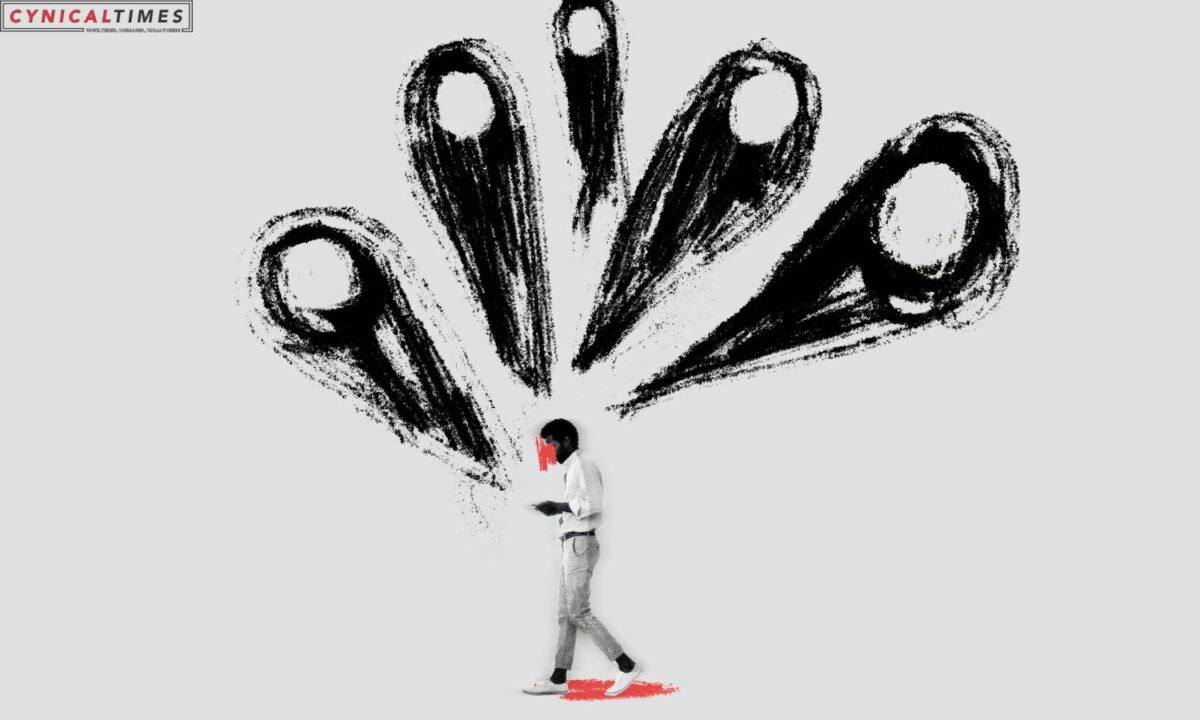Coping with Gen Z Anxiety : In today’s world, anxiety among young people has become increasingly prevalent, leading to a surge in the utilization of location tracking applications. What’s remarkable is that, rather than parents advocating for it, it’s the youth themselves who are seeking this form of added security and control.
Generation Z, confronted by a multitude of stressors including global conflicts, the enduring pandemic, and the relentless influence of social media, is turning to family location-sharing apps to regain a sense of agency and assurance.
Recent data from the Australian Bureau of Statistics reveals that nearly 40% of young Australians, aged 16 to 24, equating to over a million individuals, have grappled with various mental health disorders in the past year. Anxiety disorders are notably prevalent, afflicting two in five young women and one in four young men.
One such app, Life360, has witnessed a notable upswing in its user base, boasting 33 million monthly active users in the United States and an additional 20 million internationally. However, it’s not the solitary player in the realm of location sharing. Other tools such as Apple’s Find My, Google’s Family Link, Snapchat’s Snap Map, and GPS-equipped smartwatches are also widely adopted.
For adolescents and young adults, these tracking apps offer a semblance of control in a world they perceive as increasingly tumultuous.
Also Read : Skullcandy Budget Friendly Alternatives: Rail ANC and Rail True Wireless Earbuds
The genesis of this trend can be traced back to a tragic event in July 2020 when a 10-year-old girl was abducted and met a tragic fate. This incident left an indelible mark, particularly on young individuals like Emery Littig, who hailed from the same hometown. In response, she made the request for her parents to employ Life360, a sentiment shared by 1,500 of her schoolmates who participated in a recent survey.
Emery recounted an incident when the app promptly alerted her parents to a car accident she had been involved in (thankfully, with no injuries). On another occasion, when she felt uneasy at a social gathering, her parents were able to locate her swiftly, obviating the need for an address and arriving within just 20 minutes.
The U.S. Surgeon General has sounded the alarm regarding youth mental health, advocating for annual anxiety screenings for children as young as eight.
Shelby Littig, Emery’s mother, observed, “Kids today are inundated with news from various platforms, be it local or global, constantly bombarding their phones, tablets, and televisions. This constant exposure can undoubtedly exacerbate anxiety.”
Michele Borba, an educational psychologist and spokesperson for Life360, posits that certain contemporary parenting practices, such as helicopter parenting, snowplowing, and excessive shielding, may inadvertently contribute to their children’s anxiety.
While it is vital to acknowledge that location tracking cannot eliminate all potential risks, it serves as a lifeline for young individuals dealing with heightened anxiety.
Pamela Rutledge, the director of the Media Psychology Research Center, an esteemed independent research institution, elucidates, “It provides the psychological comfort of feeling connected. When one feels secure, they are better positioned to relax and enjoy life to the fullest.”
Another Life360 user, Larken Hendricks, a 17-year-old high-school senior, adopted the app when she commenced driving along the winding roads near her residence. However, she also relies on it when socializing in her college town at the University of Virginia. Being a young woman in such an environment brings its unique set of concerns, making location tracking an invaluable tool for peace of mind.
Our Reader’s Queries
How to help Gen Z overcome anxiety?
To better manage their daily stressors, Gen Z individuals can adopt various strategies such as mindfulness and meditation practices, regular exercise, quality sleep, appropriate supplementation, and therapy or medical interventions. By incorporating these practices into their daily routine, they can effectively moderate their reactions to stress and improve their overall well-being. It’s important to prioritize self-care and seek professional help when necessary to maintain a healthy and balanced lifestyle.
What are 3 coping strategies for anxiety?
If you’re looking for ways to cope with panic attacks, we’ve got you covered. Our section on managing panic attacks offers some helpful tips to get you started. One effective strategy is to confide in a trusted friend or family member. Additionally, it’s important to take care of your physical health and manage your worries. Breathing exercises can also be helpful in calming your mind and body. Consider keeping a diary to track your progress and identify triggers. Finally, complementary and alternative therapies may be worth exploring as well.
What stresses Gen Z the most?
Gen Z participants have expressed significant concerns regarding various issues. These include high rates of suicide, which has been a source of stress for 62 percent of them. The pandemic has also caused problems in all kinds of relationships, with 63 percent of participants expressing their worries about it. Additionally, changes to abortion laws have been a concern for 50 percent of them. Sexual assault and harassment in the news have also been a source of stress for 58 percent of Gen Z participants. These issues have been a cause of worry for the younger generation, and it is essential to address them to ensure their well-being.
When 70% of Gen Z say that anxiety and depression are significant problems among their peers?
According to a recent survey by The American Psychological Association, a staggering 90% of Gen Z individuals have reported experiencing psychological or physical symptoms due to stress in the past year. Additionally, 70% of Gen Z respondents have identified anxiety and depression as significant issues among their peers. These findings highlight the pressing need for effective stress management and mental health support for this generation.


